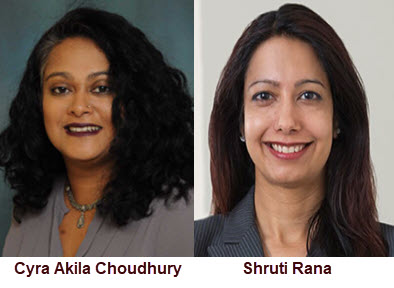Become a Patreon!
Abstract
Excerpted From: Cyra Akila Choudhury and Shruti Rana, Addressing Asian (In)visibility in the Academy, 51 Southwestern Law Review 287 (2022) (51 Footnotes) (Full Document)
 To be Asian American in the legal academy is to be caught between a paradox and a dichotomy, with both marked by silencing and erasure. The paradox exists within the term “Asian American” itself, as “'Asian’ and 'American’ have historically been posed as antithetical” identities in U.S. history and jurisprudence. On one side is a representation of unassimilable perpetual foreignness with Asian bodies targeted for violence and unequal protection of the law often justified by their perceived threat to national security. On the other is the lure of assimilation, where the model minority myth offers a purported path into acceptance at the price of complicity with the status quo and fractured solidarity. This paradox exists simultaneously within a binary, an American racial hierarchy traditionally painted in only black and white. This binary obscures the experiences of Asian Americans which are under-reported, under-examined, and under-addressed while their claims for inclusion are framed as zero-sum battles over a small or shrinking slice of the pie.
To be Asian American in the legal academy is to be caught between a paradox and a dichotomy, with both marked by silencing and erasure. The paradox exists within the term “Asian American” itself, as “'Asian’ and 'American’ have historically been posed as antithetical” identities in U.S. history and jurisprudence. On one side is a representation of unassimilable perpetual foreignness with Asian bodies targeted for violence and unequal protection of the law often justified by their perceived threat to national security. On the other is the lure of assimilation, where the model minority myth offers a purported path into acceptance at the price of complicity with the status quo and fractured solidarity. This paradox exists simultaneously within a binary, an American racial hierarchy traditionally painted in only black and white. This binary obscures the experiences of Asian Americans which are under-reported, under-examined, and under-addressed while their claims for inclusion are framed as zero-sum battles over a small or shrinking slice of the pie.
These dynamics are replicated in and impact the legal academy as well. Asian American faculty, staff, and students in U.S. law schools must navigate the paradox of simultaneous invisibility and visibility while battling against the labels and stereotypes it perpetuates. The consequences of the liminal position of Asian American lawyers and law professors can negatively impact not only individuals but also the legal academy and the profession as a whole.
In this Essay, we first examine these dynamics of representation and how they impact and circumscribe the experiences, opportunities, and advancement of Asian American law faculty. We aim to draw attention to the real rather than perceived problems facing Asian American law faculty as well as Asian Americans in the legal profession more generally. We argue that while Asian Americans are, in fact, diverse in their identities and experiences, the predominant perception about them in the legal academy is that they are a monolithic group assimilated to the dominant culture and reflect various iterations of the “model minority myth.” This narrative not only obscures the complexity of the discrimination against Asian American law faculty but also allows the academy to blame individuals for their own marginalization, ignoring the systemic forces at work. Together, these factors elide and mischaracterize the challenges Asian American law faculty face and create obstacles to effective solutions--all with a high human cost, as Professor Deo so evocatively captures in Unequal Profession.
We then explore the law school responses to racial exclusion in the aftermath of the George Floyd murder and the Atlanta massacre, arguing that these responses are insufficient to resolve the underrepresentation of Asian Americans and other minority groups. We conclude with suggestions for avoiding the common traps that constrict Asian American representation and advancement. We also address the ways we might forge solidarity among different groups to foster change that moves the legal academy towards greater inclusion. While we discuss Asian Americans generally in this Essay, we recognize the intersectional raceXgender subordination that Asian American women face in particular. We use Professor Deo's insights to expand our understanding of the invisibility of the group more broadly.
[. . .]
Professor Deo's book is an example of solidarity in action that we can all learn from. Throughout the book, we come across women faculty of all backgrounds with similar stories of silencing, marginalization, and erasure who are given a voice. While there are differences, the similarities that women of color face in the academy are far more important, but no one's voice is amplified at the expense of another's. In keeping with the spirit of Professor Deo's work, we must be committed across differences to ethics of racial equality and justice and a redistribution of power to the marginalized and disempowered. For Asian Americans, the first hurdle, as demonstrated by the US News diversity ranking scandal, is to be authentically seen as racialized minorities that contribute to diversity. And the next is for all groups across the existing racial binary to understand that Asians are the most underrepresented in the legal academy and must be given proper attention in all diversity and inclusion efforts.
Cyra Akila Choudhury, Professor of Law, FIU College of Law.
Shruti Rana, Senior Assistant Dean for Curricular and Undergraduate Affairs and Director of the International Law and Institutions Program; Professor, International Law, Hamilton Lugar School of Global and International Studies, Indiana University Bloomington.
Become a Patreon!


